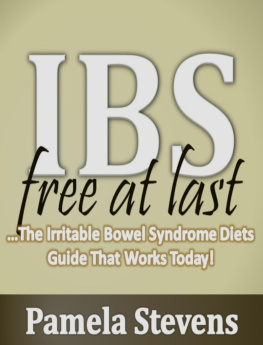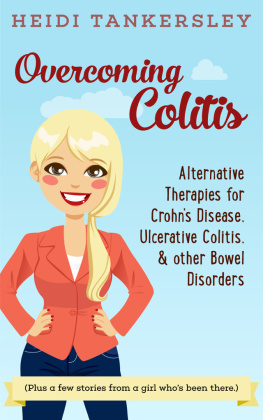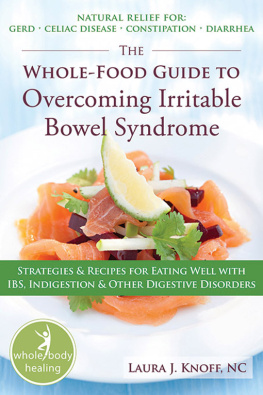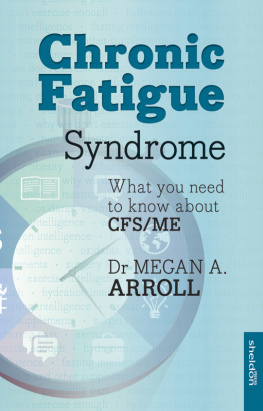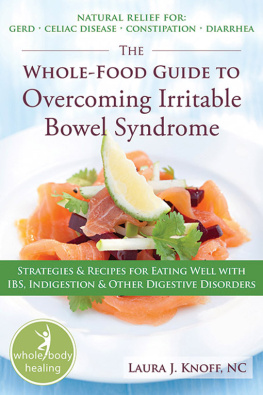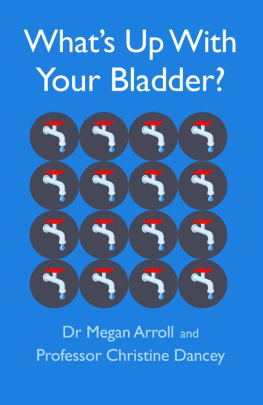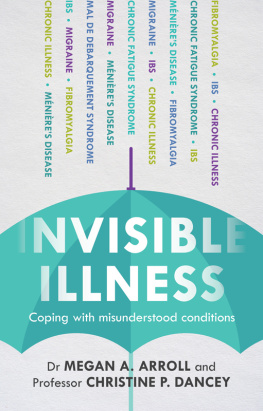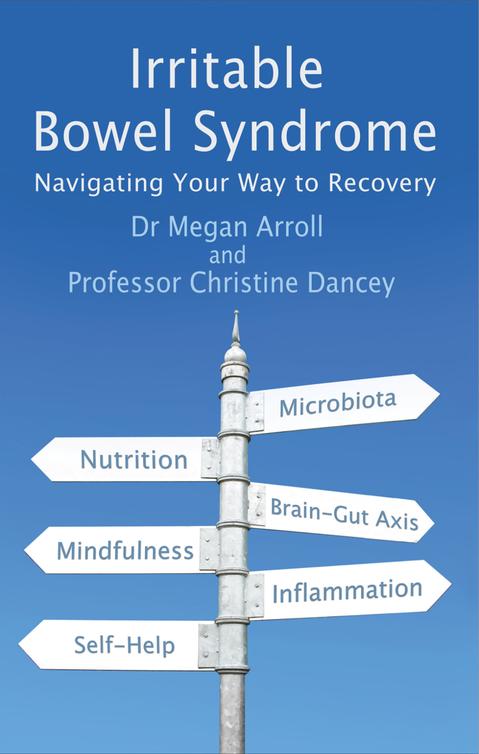Dr Arroll and Professor Dancey have written a book which will help not only those with IBS, but everyone who has an interest in this condition. Based on the latest scientific research, they give insight into the causes and most up-to-date treatments for IBS. They show how to successfully manage the condition by a combination of dietary, behavioural, and self-help techniques.
The authors have over 25 years of experience of researching chronic illnesses and they write with great sensitivity about a subject which some people still think is simply a manifestation of stress. This book will show you that it is possible to cope successfully with IBS.
Elizabeth E Attree, leader of Chronic Illness Research Unit, University of East London, UK
This latest book from Christine and Meg leaves no stone unturned in its approaches to IBS in all its aspects. I cannot imagine a more comprehensive book. Written for people with IBS and their families and friends, it is thoroughly accessible yet packed with the latest research and up-to-date guidance on this complex condition. As the authors say, anyone who dismisses IBS as just stress-related probably doesnt know anything about it. The book deals with the complex communications between brain and gut, interacting with social and biological factors. The role of gut microbiota, mast cells, genetics and many other potential triggers are discussed. Finally, there is a great chapter on self-help for people with the condition. I particularly liked the section on Mindfulness a useful technique to help with IBS and life generally. An excellent book.
Maureen OHara, former Chair, IBS Network, UK
First published in 2015 by Hammersmith Health Books an imprint of Hammersmith Books Limited
14 Greville Street, London EC1N 8SB, UK
www.hammersmithbooks.co.uk
2016, Dr Megan Arroll and Professor Christine Dancey
Dr Megan Arroll and Professor Christine Dancey have asserted their right under the Copyright, Designs and Patent Act 1988 to be identified as the author of this work.
All rights reserved. No part of this publication may be reproduced, stored in any retrieval system or transmitted in any form or by any means, electronic, mechanical, photocopying, recording or otherwise, without the prior written permission of the publisher and the authors, except in the case of brief quotations embodied in critical articles and reviews.
Disclaimer: The information contained in this book is for educational purposes only. It is the result of the study and experience of the authors. Whilst the information and advice offered are believed to be true and accurate at the time of going to press, neither the authors nor the publisher can accept any legal responsibility or liability for any errors or omissions that may have been made or for any adverse effects which may occur as a result of following the recommendations given herein. Always consult a qualified medical practitioner if you have any concerns regarding your health.
British Library Cataloguing in Publication Data: A CIP record of this book is available from the British Library.
Print ISBN 978-1-78161-069-5
Ebook ISBN 978-1-78161-070-1
Commissioning editor: Georgina Bentliff
Designed by: Julie Bennett, Bespoke Publishing Ltd
Cover design and typesetting by: Sylvia Kwan
Index: Dr Laurence Errington
Production: Helen Whitehorn, Path Projects Ltd
Printed and bound by: TJ International Ltd
Megan would like to dedicate this book to Meghan Lacey and her mum Tessa. Meg, youve been an absolute trooper in spite of some rotten luck. Tess, you are a total superwoman and I have nothing but respect for your grace and dignity in the face of every obstacle that has been set in your path. Love you both and Rhiann, Alysia, Andy, Sharon and Tony too. We love and think of you, Ady, every day, wherever you are.
Christine would like to dedicate this book to Professor David Wingate, for all the help you have given to me and to the IBS Network over the past 25 years and, of course, for furthering the knowledge of IBS in general, thereby helping everyone with the condition.
Christine would also like to dedicate this book to Yula Andrews, Paula Fearn and Paula Walker thanks for all your personal support.
Contents
We would like to thank Professor Douglas Drossman for agreeing to read the manuscript and his kind input into the book in addition to writing the foreword despite his many other work commitments. We would also like to thank Dr Cecilia Hkanson for going through the draft manuscript and for making so many useful comments and suggestions for change. This has helped us enormously in improving the book. We thank Dr Hkanson also for contributing the books Preamble.
We would like to thank Jo Johnstone, as always, for her expert proof-reading and feedback. We would also like to thank Maureen OHara and Matt Bowskill, who carefully read our manuscript and provided detailed feedback the book has benefited greatly from their suggestions.
Finally, we would also like to thank all the people with IBS who kindly gave their time to share their personal experiences of IBS and who gave permission to use their narratives in the book.
Thirty years ago, in South London, Christine developed what appeared to be the symptoms of IBS mostly abdominal pain, and bowel problems. She had various tests, including a barium enema and barium meal. The tests showed she did not have inflammatory bowel disease or cancer. As Christine at that time had no knowledge of endometriosis, she believed the doctors when they said she had irritable bowel syndrome (IBS). None of the medications prescribed improved Christines symptoms; even when she had additional symptoms that were not consistent with IBS, various doctors maintained that she had IBS and that the additional symptoms were due to stress.
Christine felt let down by the health system and set about finding a self-help group to join. After searching extensively she didnt find any groups but she did find someone who was herself looking to find an IBS self-help group Sue Backhouse, who lived in Sheffield. They began corresponding and decided to write a newsletter that they could send out to people with the condition and which hopefully would lead to setting up a self-help group. They contacted gastroenterologists and doctors and asked them to contribute. Christine telephoned a radio station and asked to be allowed to talk about IBS and encouraged anyone listening who had the symptoms to contact her for a newsletter. The newsletter, a simple two-sided document, was called Gut Reaction and their organisation, The IBS Network. Around 50 people replied. More publicity, in magazines and newspapers, led to 10,000 letters in big sacks being delivered to Christines house. It was obvious that there was a big need for information for people who had the symptoms of IBS. Friends and families rallied round to answer all the letters and it took many weeks to get the newsletters printed and sent out.
As a University lecturer and researcher, Christine then decided to do some research into the condition. She was amazed to find that there were hardly any papers or books for the layperson on IBS. There were medical papers but these were not written in a style that laypeople would find useful. Christine and Sue began to find out how people felt about their illness by asking people from the IBS Network how it affected their lives. Together they published an article and four books on the subject. Members of the IBS Network created more self-help groups and the newsletter, now a much improved glossy magazine (still called


